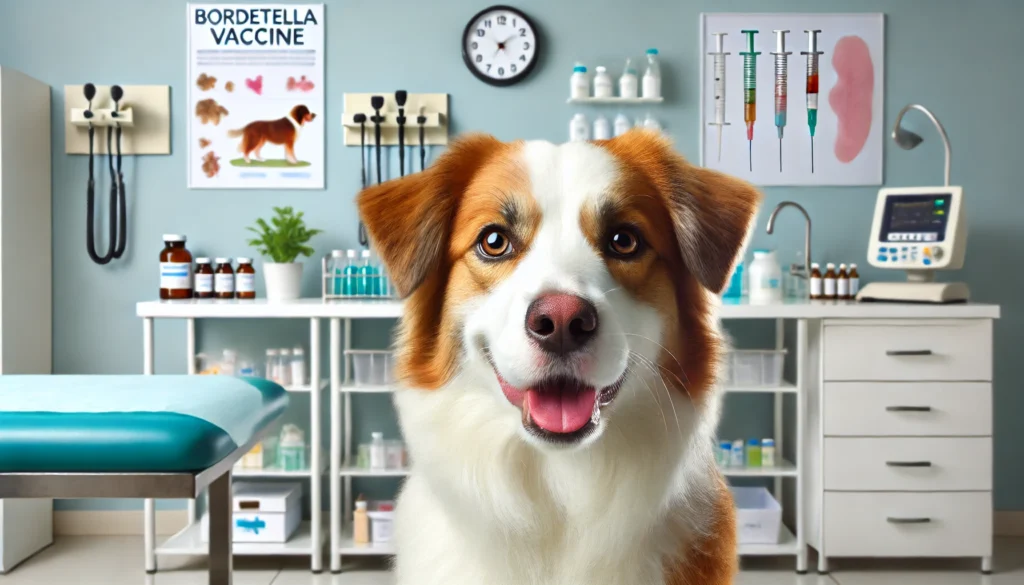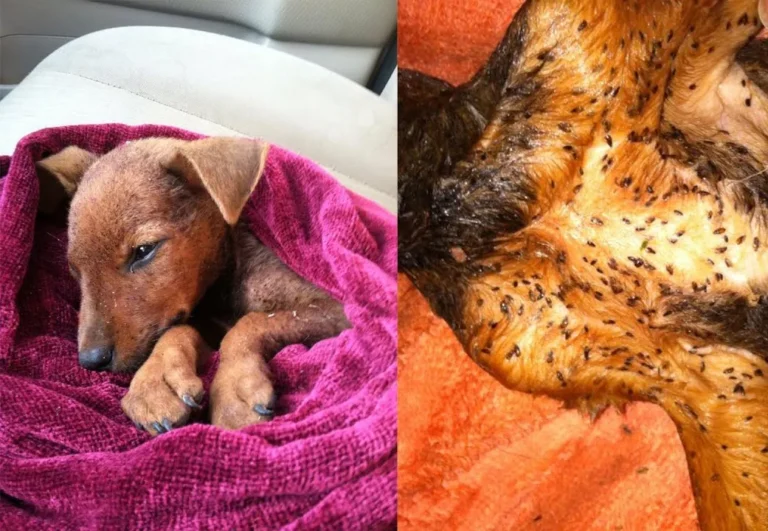Bordetella Vaccine for Dogs

What is Bordetella in dogs?YES!Bordetella vaccine for dogs is a critical tool in a pet owner’s arsenal. Commonly associated with kennel cough, Bordetella bronchiseptica is a highly infectious bacterium that can lead to severe, persistent coughing and other respiratory complications in dogs. This vaccine is particularly vital for dogs that frequent high-risk environments such as kennels, dog shows, and grooming facilities where the transmission of respiratory pathogens is rampant.
Understanding Bordetella bronchiseptica
What is Bordetella bronchiseptica?
Bordetella bronchiseptica is a highly contagious bacterium that is one of the primary causes of kennel cough, also known as canine infectious tracheobronchitis, among dogs. This pathogen can affect a wide range of animals, including cats and rabbits, but its impact on dogs is of particular concern for pet owners and veterinarians. The bacterium attaches itself to the cilia (tiny, hair-like structures) in the respiratory tract, producing toxins that paralyze these cilia and cause inflammation of the trachea and bronchi.
Symptoms and Diagnosis
The classic symptom of an infection caused by Bordetella bronchiseptica is a persistent, dry cough that often sounds like a “goose honk.” Dogs may also exhibit sneezing, runny nose, and eye discharge. Severe cases can lead to pneumonia, especially in puppies or older dogs with compromised immune systems. Diagnosis typically involves a clinical examination and may include laboratory tests such as bacterial cultures or PCR testing to identify the bacterium.
Transmission and Risk Factors
Transmission of Bordetella bronchiseptica occurs primarily through direct contact with infected animals or through the air via coughs and sneezes. It can also spread through contact with contaminated surfaces, like water bowls and toys. High-risk environments include places where dogs congregate, such as kennels, dog parks, grooming parlors, and pet stores. Dogs that frequently interact with other dogs or those who participate in dog shows are at increased risk of contracting the disease.
Treatment and Prevention
Treatment for Bordetella bronchiseptica infection may involve antibiotics to control bacterial infection and cough suppressants to ease symptoms. However, prevention through vaccination is considered the most effective strategy. The Bordetella vaccine for dogs can be administered in various forms, including injectable and intranasal routes, which help to stimulate immunity against the bacterium.
Transmission and Risk Factors
Bordetella bronchiseptica is highly contagious among dogs, primarily spreading through airborne particles when infected animals cough or sneeze. This pathogen can also be transmitted via direct contact with infected dogs or through contact with contaminated objects such as leashes, collars, water bowls, or bedding. Given the resilient nature of this bacterium, it can survive outside the host for several days under optimal conditions, increasing the risk of spread in communal or densely populated environments.
High-Risk Environments
Certain environments significantly elevate the risk of a dog contracting Bordetella bronchiseptica. These include:
- Kennels and Boarding Facilities: High dog turnover and close quarters facilitate rapid spread.
- Dog Parks and Playgroups: Frequent social interactions with numerous dogs can increase exposure.
- Veterinary Clinics and Hospitals: Although sanitary measures are stringent, sick animals in close proximity can spread the infection.
- Grooming Salons: Shared grooming tools and close physical handling can transmit the pathogen.
- Pet Stores and Animal Shelters: These often crowded conditions with stressed immune systems of animals are perfect breeding grounds for respiratory pathogens.
Dogs at Increased Risk
While all dogs can potentially contract Bordetella bronchiseptica, certain factors make some dogs more susceptible:
- Puppies: Their immune systems are not fully developed.
- Senior Dogs: Older dogs often have weaker immune systems and may have chronic health conditions that can exacerbate an infection.
- Dogs with Pre-existing Respiratory Conditions: Animals already suffering from respiratory ailments are at a higher risk of severe complications.
- Immunocompromised Dogs: Dogs with weakened immune systems, whether due to illness or medical treatment, are more susceptible to infections.

The Bordetella Vaccine
Types of Bordetella Vaccines
Bordetella bronchiseptica vaccines are critical in preventing kennel cough and other respiratory infections in dogs. These vaccines come in various forms, each with specific applications, benefits, and considerations. Understanding the different types of Bordetella vaccines can help dog owners make informed decisions about the best protection for their pets.
Injectable Vaccines
Injectable Bordetella vaccines are administered via a needle and are designed to stimulate the dog’s immune system to produce antibodies against Bordetella bronchiseptica. This type of vaccine is often preferred for its ease of administration and the controlled dosage it provides. However, it may take slightly longer for immunity to develop compared to intranasal vaccines. Side effects are generally mild but can include soreness at the injection site, mild fever, and lethargy.
Intranasal Vaccines
Intranasal vaccines are administered directly into the dog’s nose and are designed to provide localized immunity in the upper respiratory tract, where Bordetella infections typically start. This type of vaccine tends to work faster in stimulating immune response due to its direct application to the mucosal surfaces. It can be particularly effective in high-risk environments such as kennels or dog shows. The common side effects may include sneezing or nasal discharge immediately after administration.
Oral Vaccines
Oral Bordetella vaccines are administered as drops into the dog’s mouth. Like the intranasal vaccine, the oral vaccine targets mucosal immunity and is favored for its non-invasive administration, which can be less stressful for dogs and easier for owners to handle. Side effects are uncommon but can include mild gastrointestinal upset.
Benefits of Bordetella Vaccination
Preventing Respiratory Infections
Vaccinating dogs against Bordetella bronchiseptica is primarily aimed at preventing kennel cough, a highly contagious respiratory disease. Kennel cough can cause severe coughing spells, retching, and in some cases, secondary infections such as pneumonia. The Bordetella vaccine significantly reduces the severity of symptoms and the likelihood of severe complications. By stimulating the dog’s immune system to build defenses against Bordetella, the vaccine helps maintain the health and comfort of the dog, especially those that are frequently exposed to high-risk environments.
Enhanced Quality of Life
Dogs that are vaccinated with the Bordetella vaccine enjoy a higher quality of life as they are less likely to contract and spread the disease. This is particularly important for dogs that interact regularly with other dogs in parks, boarding facilities, or during travel. A healthier dog means less stress for the owner and fewer costly visits to the vet for treatment of preventable illnesses.
Community Health Benefits
When a significant number of individuals in a population are vaccinated, the spread of infectious diseases can be reduced, leading to lower outbreak potentials. This concept, known as herd immunity, applies to pets in communal living situations. Vaccination not only protects individual dogs but also helps to protect vulnerable dogs who cannot be vaccinated due to health issues or age constraints.
Economic Benefits
The costs associated with treating kennel cough or more severe complications can be substantial. Vaccination is a cost-effective measure that helps avoid expensive treatments for infections and secondary complications. Pet owners can save on potential medical bills and avoid the emotional stress associated with seeing their pets in distress.
Reduction in Antibiotic Use
By preventing bacterial infections like Bordetella bronchiseptica, vaccination reduces the need for antibiotics, which can help combat antibiotic resistance—a growing concern in both human and veterinary medicine. Responsible use of vaccines contributes to the overall health of the pet population and reduces the dependency on antibiotics.
Possible Side Effects and Considerations
Like any medical intervention, Bordetella vaccines can have side effects, although they are generally mild and temporary. The type of vaccine—whether injectable, intranasal, or oral—can influence the specific side effects experienced.
- Injectable Vaccines: These may cause localized pain at the injection site, mild fever, and lethargy. Some dogs might experience reduced appetite or slight swelling where the shot was administered.
- Intranasal Vaccines: The most common side effects include sneezing, nasal discharge, and mild coughing shortly after administration. These symptoms are typically short-lived and reflect the body’s immune response to the vaccine.
- Oral Vaccines: Side effects can include mild gastrointestinal upset, such as diarrhea or vomiting, especially if the dog swallows the vaccine instead of it being absorbed orally.
DO YOU KNOW
Ticks are a common problem for dogs, especially if they spend time outdoors in grassy or wooded areas. Regularly checking your dog for ticks is an essential part of pet care, as these parasites can carry diseases that may affect both your pet and your family.
Rare Complications
While rare, more serious reactions can occur, which include allergic reactions, severe respiratory distress, or anaphylactic reactions. Such events require immediate veterinary attention. Persistent coughing, significant nasal discharge, or prolonged lethargy post-vaccination should be evaluated by a veterinarian.
Considerations for Vaccination
Assessing the Need
The decision to vaccinate against Bordetella should be based on several factors:
- Lifestyle and Exposure: Dogs that are frequently in contact with other dogs at parks, kennels, or shows are at higher risk and thus prime candidates for vaccination.
- Age and Health Status: Very young puppies, elderly dogs, and those with pre-existing health conditions may need tailored vaccination schedules or special consideration regarding the type of vaccine used.
Timing and Frequency
- Vaccination Schedule: Bordetella vaccines generally require initial administration followed by regular boosters. For high-risk environments, veterinarians might recommend more frequent vaccination.
- Integration with Other Vaccines: Bordetella vaccination can be administered in conjunction with other routine vaccines, but scheduling should be discussed with your veterinarian to optimize effectiveness and reduce stress on the dog’s immune system.
Behavioral and Environmental Management
- Reducing Stress: Minimizing stress through proper handling during vaccination can affect how well a dog responds to a vaccine. Stress can impact the immune system’s response, so keeping the experience as calm as possible is beneficial.
- Environmental Controls: Improving sanitation in environments where dogs interact can help reduce the spread of Bordetella and other pathogens, thereby complementing the protective effects of vaccination.
Case Studies and Veterinary Insights
Real-World Efficacy
Case Study 1: Large Boarding Facility Implementation A large dog boarding facility reported frequent outbreaks of kennel cough, affecting both their business and the health of the dogs. After instituting a mandatory Bordetella vaccination policy for all incoming dogs and improving their ventilation systems, the facility noticed a dramatic decrease in respiratory illness cases within six months. This case study highlights the effectiveness of vaccination in combination with environmental management in controlling disease spread.
Case Study 2: Rescue Shelter Experience A rescue shelter experienced a severe Bordetella bronchiseptica outbreak that resulted in several dogs developing pneumonia. The shelter began a regimented vaccination program, including the use of intranasal vaccines for rapid immunity. The subsequent reduction in disease incidence not only improved the health of the dogs but also enhanced their adoptability and reduced veterinary care costs.
Expert Opinions
Veterinarian Insights on Vaccine Choices Dr. Jane Smith, a veterinarian with over 20 years of experience in small animal practice, emphasizes the importance of choosing the right type of Bordetella vaccine based on the dog’s lifestyle. For dogs frequently attending doggy daycare or boarding, Dr. Smith recommends the intranasal vaccine for its quick onset of immunity. For pets with less exposure, the injectable vaccine might be more appropriate due to its long-lasting effects and fewer immediate side effects.
Discussion on Vaccine Schedules Veterinary immunologist Dr. Eric Johnson discusses the nuances of Bordetella vaccine schedules. He notes that while the typical recommendation is annual revaccination, more frequent vaccines might be necessary for dogs in high-risk environments. Dr. Johnson also stresses the importance of integrating the Bordetella vaccination into a broader immunization schedule to ensure comprehensive protection without overwhelming the dog’s immune system.
Addressing Vaccine Hesitancy Dr. Lisa Rodriguez speaks on the occasional hesitancy pet owners feel about vaccinating due to fear of side effects. She reassures that while side effects can occur, severe reactions are rare. Dr. Rodriguez advocates for open communication between veterinarians and dog owners to discuss the benefits and risks, ensuring that decisions are well-informed and tailored to each dog’s specific needs.
Conclusion
The Bordetella vaccine plays a crucial role in protecting dogs from Bordetella bronchiseptica, the bacterium responsible for kennel cough and other respiratory ailments. As we have explored throughout this guide, the benefits of vaccinating dogs extend far beyond individual health. Vaccination contributes to the overall well-being of the canine community by preventing the spread of infection and reducing the incidence of severe respiratory complications.
From the various types of vaccines available—injectable, intranasal, and oral—to understanding the potential side effects, it is clear that the decision to vaccinate should be made with comprehensive knowledge and consideration of a dog’s specific lifestyle and health needs. Vaccination schedules and the choice of vaccine type should be tailored to maximize protection while minimizing risk, with guidance from a trusted veterinarian.
Is Bordetella Vaccine Necessary for Dogs?
Yes, the Bordetella vaccine is considered necessary for dogs that are at increased risk of contracting kennel cough, particularly those that frequently interact with other dogs in settings such as dog parks, boarding facilities, and grooming salons. The vaccine plays a crucial role in preventing Bordetella bronchiseptica, a key pathogen in kennel cough, which can lead to severe respiratory issues. By vaccinating, owners can significantly reduce the risk of their dogs experiencing the uncomfortable and potentially harmful symptoms associated with this disease, making the Bordetella vaccine an essential part of preventive health care for dogs.
What is Bordetella in Dogs?
Bordetella in dogs refers to Bordetella bronchiseptica, a bacterium that is one of the primary causes of kennel cough or infectious tracheobronchitis. This highly contagious respiratory disease is characterized by inflammation of the trachea and bronchi. Dogs infected with Bordetella may exhibit symptoms such as a persistent cough, sneezing, and nasal discharge. The condition can vary in severity and, without proper management, can lead to more serious health issues. Vaccination against Bordetella is a common preventive measure recommended for dogs that are regularly exposed to crowded conditions.
Are Bordetella and Distemper the Same Thing?
No, Bordetella and distemper are not the same thing. Bordetella refers to the bacterium Bordetella bronchiseptica, which causes kennel cough, a highly contagious respiratory disease in dogs. On the other hand, distemper is caused by the canine distemper virus, a separate and more severe virus that affects the respiratory, gastrointestinal, and nervous systems of dogs and other wildlife. Both diseases are preventable through vaccination, but they are caused by different pathogens and require different management and treatment approaches.
How Long Does Bordetella Last for Dogs?
The duration of Bordetella infection in dogs can vary. Typically, if untreated, the symptoms of kennel cough, including a hacking cough and other respiratory symptoms, can last from a few weeks to around a month. With appropriate treatment, such as antibiotics and cough suppressants, the duration and severity of the symptoms can be significantly reduced. Preventive measures, including regular vaccination with the Bordetella vaccine, are effective in reducing both the incidence and severity of outbreaks.
How Many Times is Bordetella Given?
The Bordetella vaccine is typically administered annually to dogs as a standard preventive measure. However, the frequency can vary depending on the dog’s risk of exposure and the type of vaccine used. For dogs at higher risk of exposure, such as those frequently visiting kennels or participating in dog shows, the vaccine may be recommended every six months. Veterinarians may adjust the vaccination schedule based on an individual dog’s health, lifestyle, and specific risk factors.
What Disease is Caused by Bordetella?
Bordetella bronchiseptica causes kennel cough, or infectious tracheobronchitis, in dogs. This disease is highly contagious and primarily affects a dog’s respiratory system. It is characterized by inflammation of the trachea and bronchi, leading to a persistent, dry cough that can sound like a honking noise. While kennel cough can often be mild, it can lead to more serious conditions, such as pneumonia, especially in puppies, elderly dogs, or dogs with compromised immune systems.
What Kills Bordetella Virus?
Bordetella bronchiseptica is a bacterium, not a virus, and can be killed by various disinfectants and appropriate antibiotics prescribed by a veterinarian. Cleaning and disinfecting environments where dogs congregate, such as kennels and doggy daycare centers, are crucial in controlling the spread of infection. Regular and thorough cleaning with products that are effective against bacteria can help prevent the spread of Bordetella among dogs.
What are 5 Symptoms of Whooping Cough?
Whooping cough, or pertussis, primarily affects humans and is caused by the bacterium Bordetella pertussis. The five common symptoms of whooping cough include:
Severe coughing fits that end in a “whooping” sound when breathing in.
Runny nose, which may be mistaken for a common cold.
Fever, although usually mild.
Red or watery eyes, especially during coughing spasms.
Vomiting after coughing fits, due to the severity of the cough.






